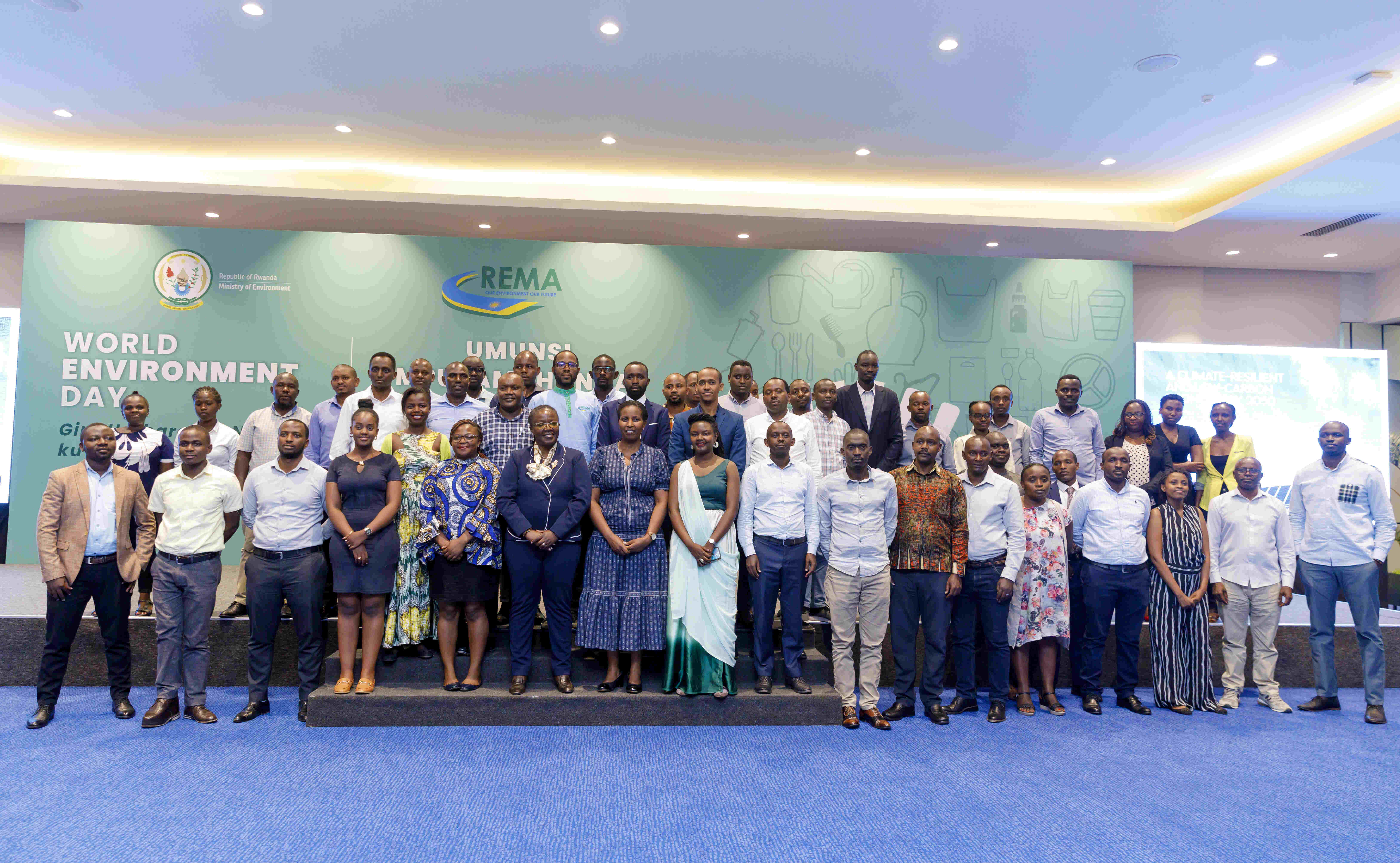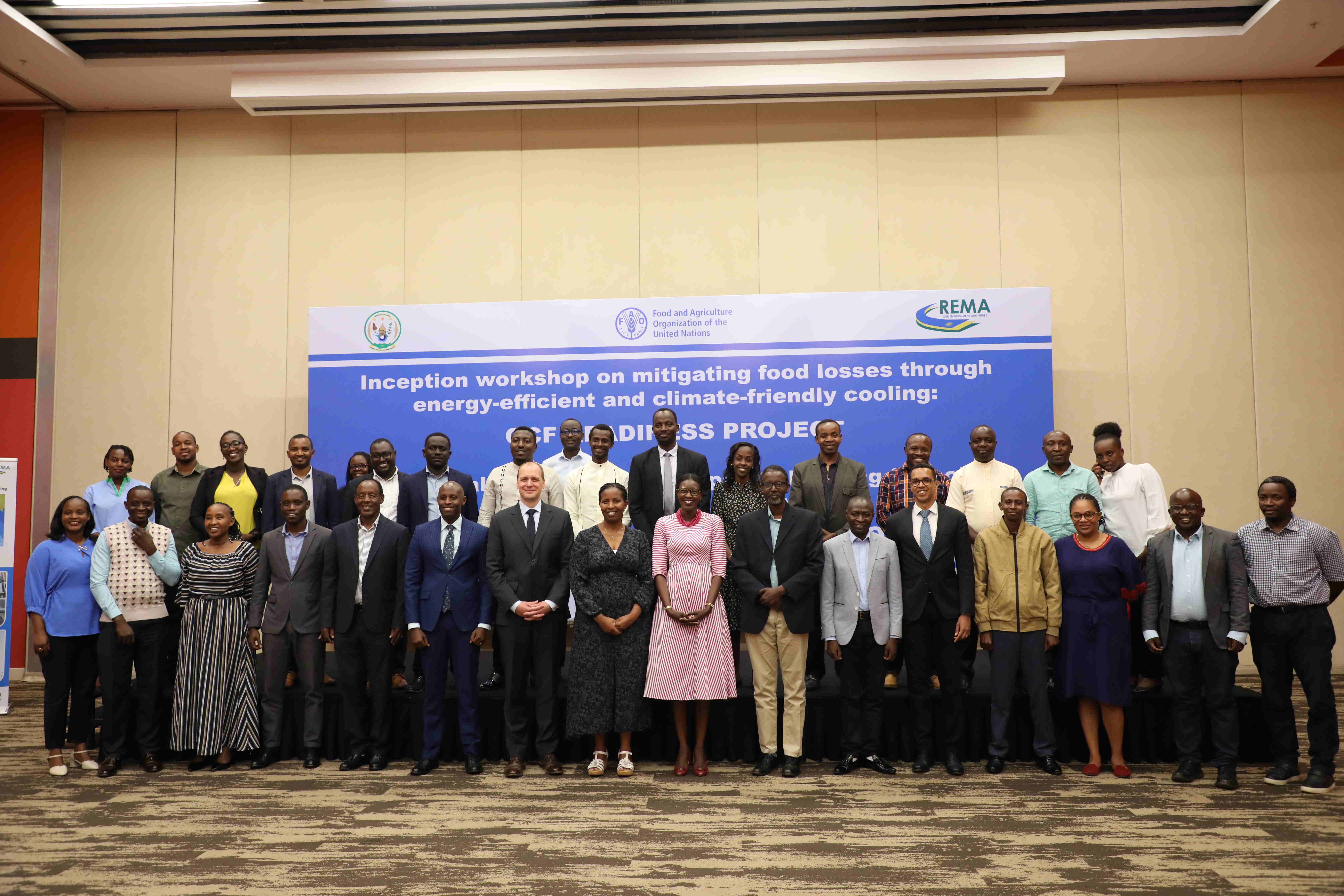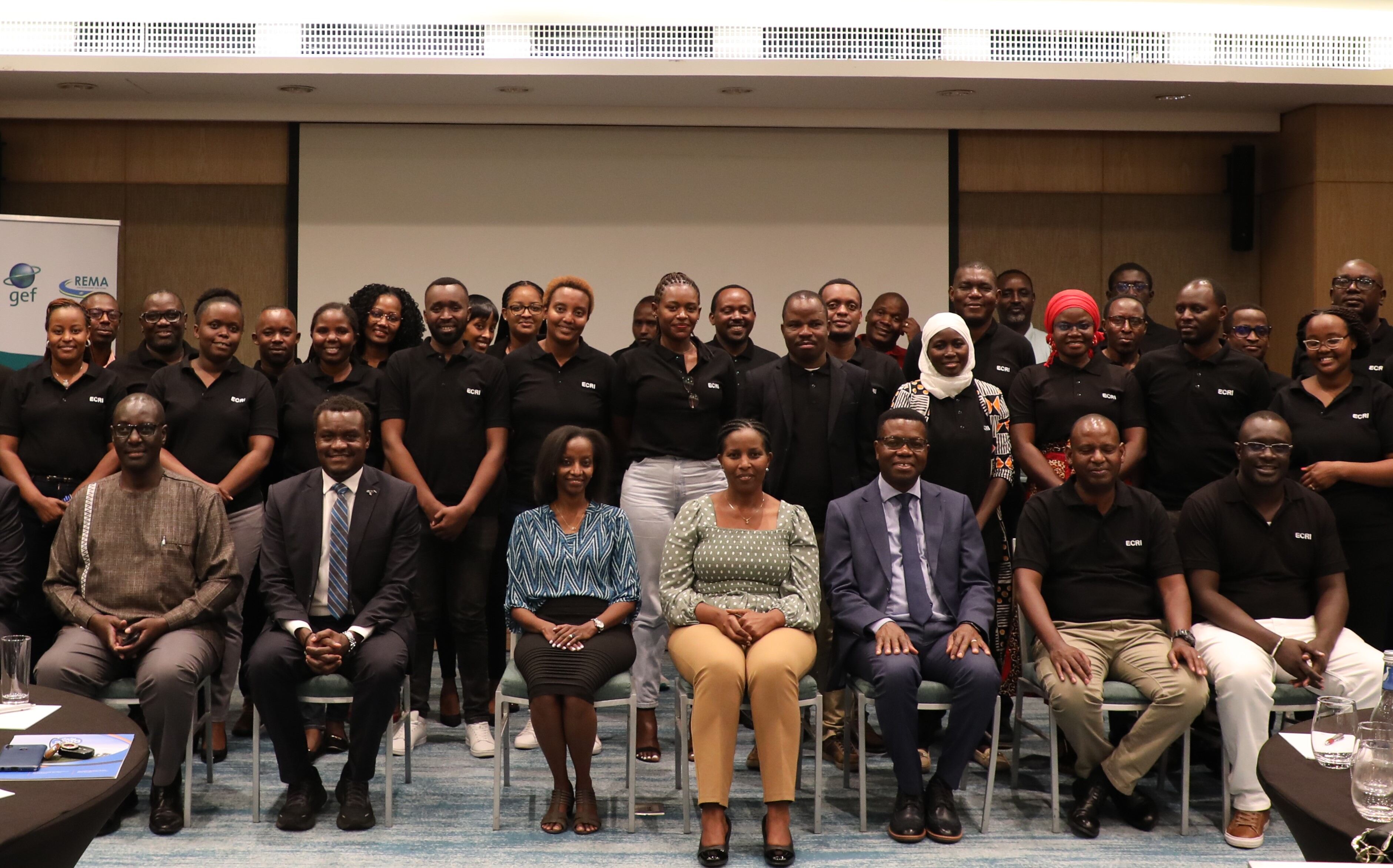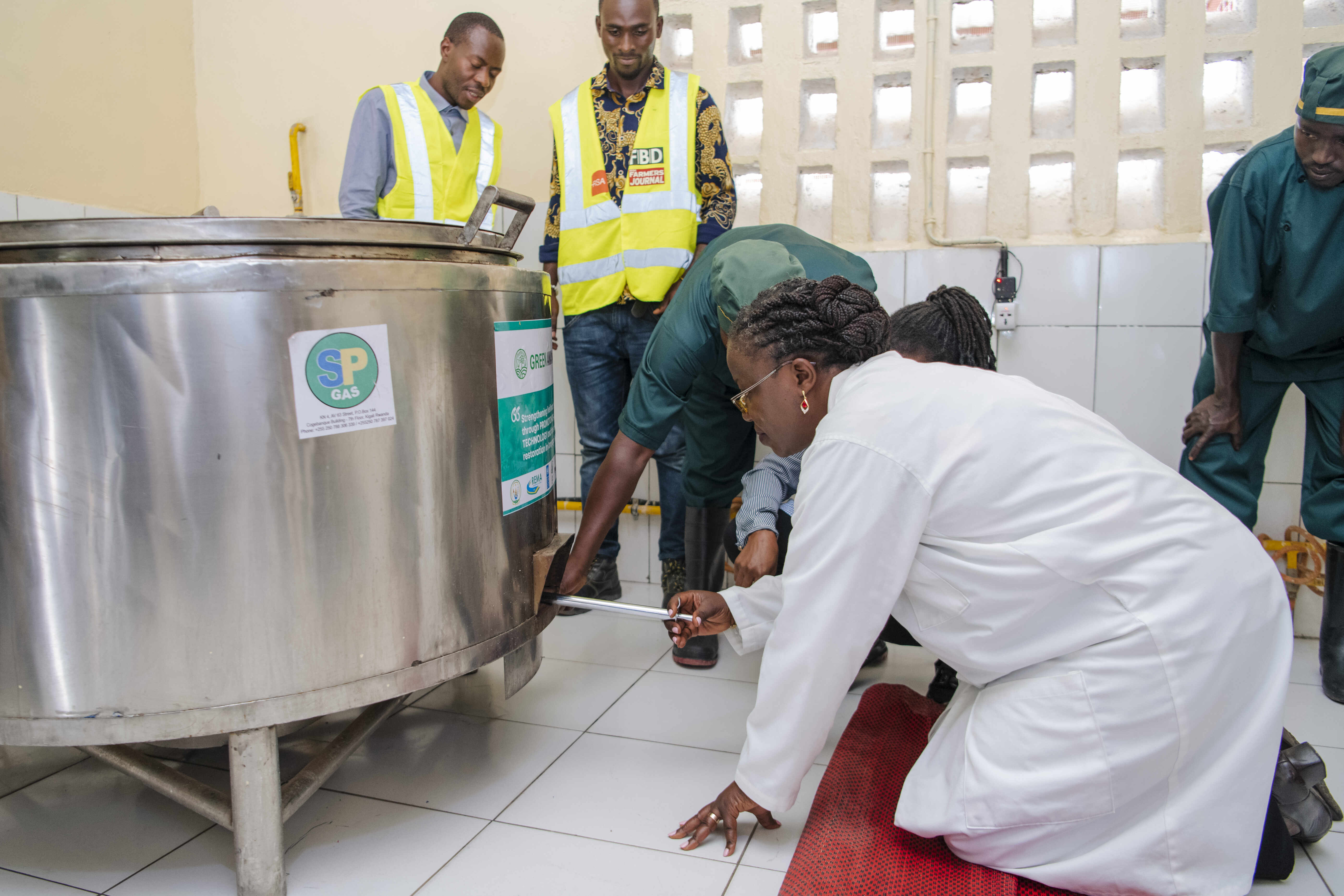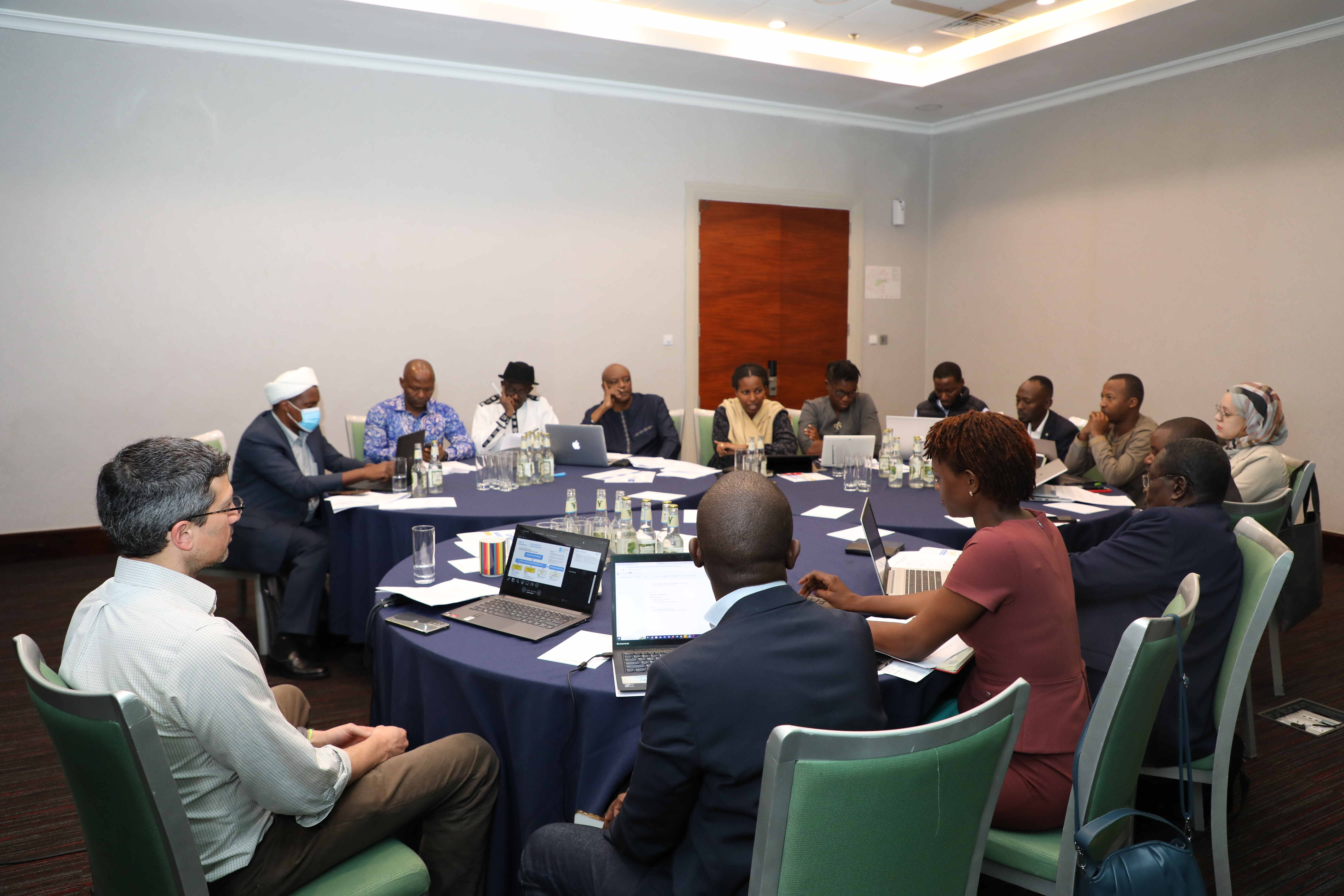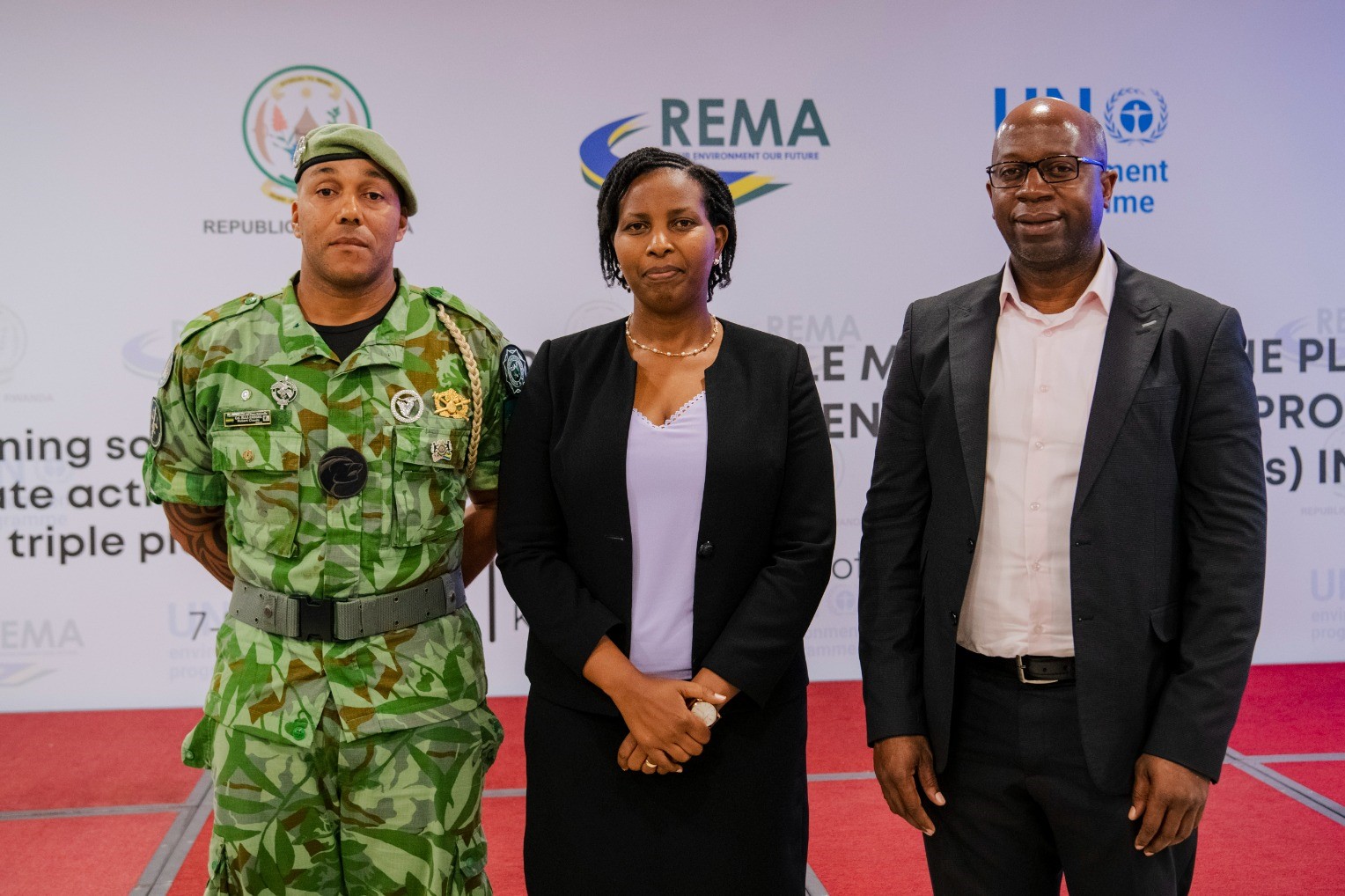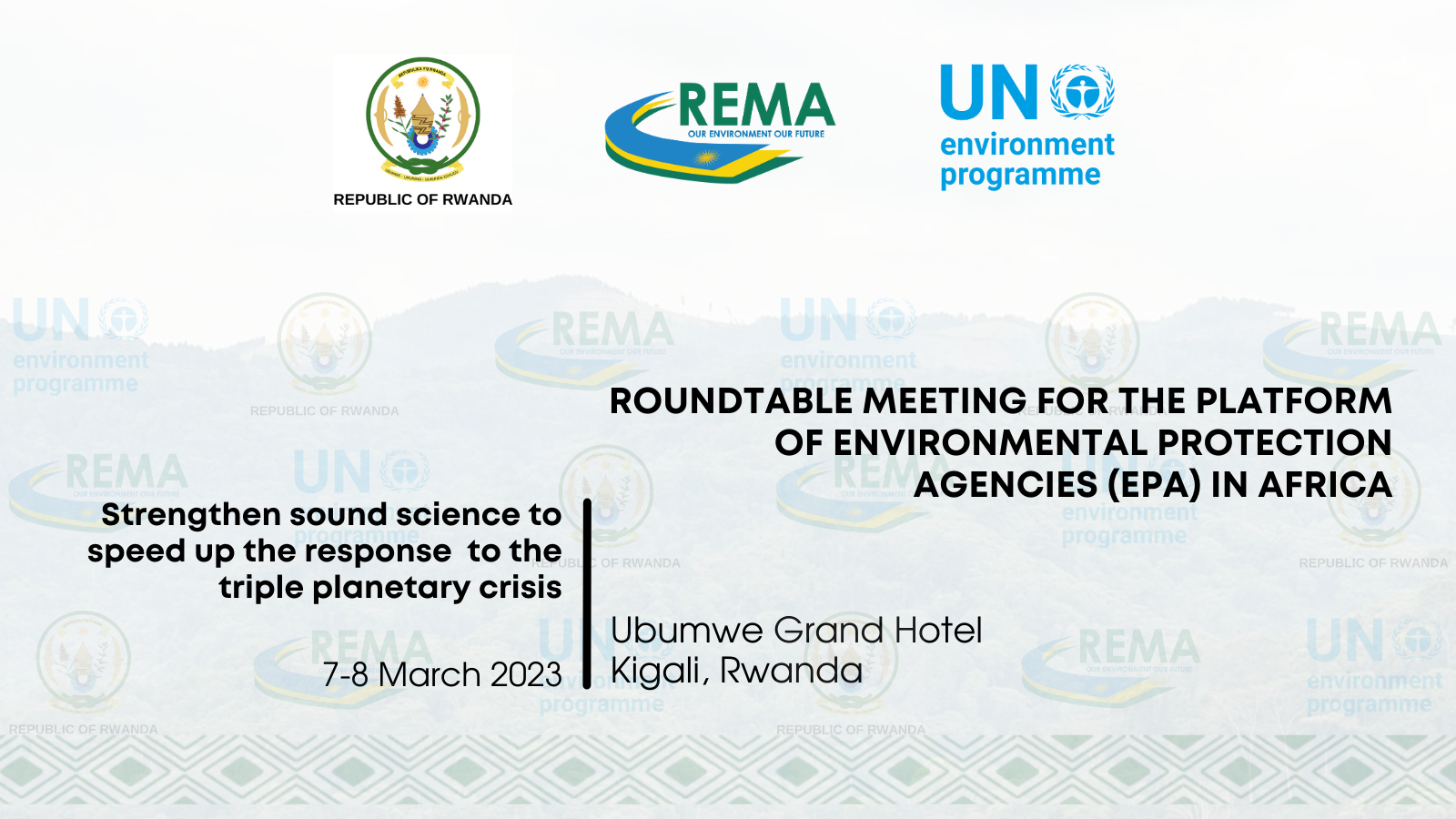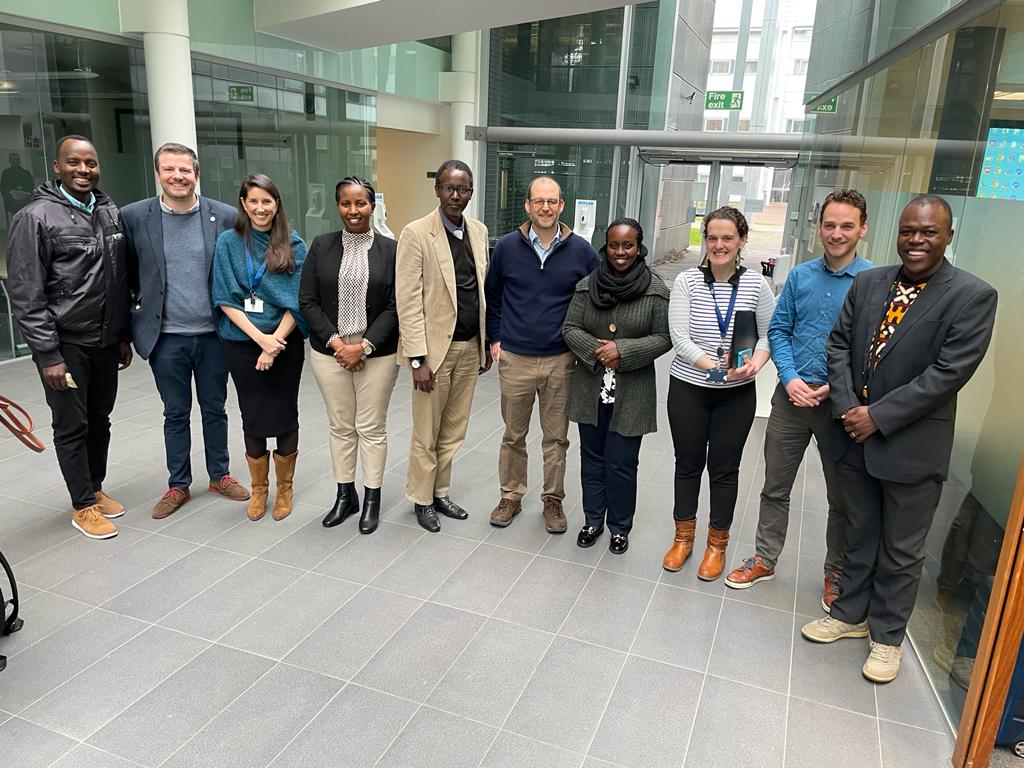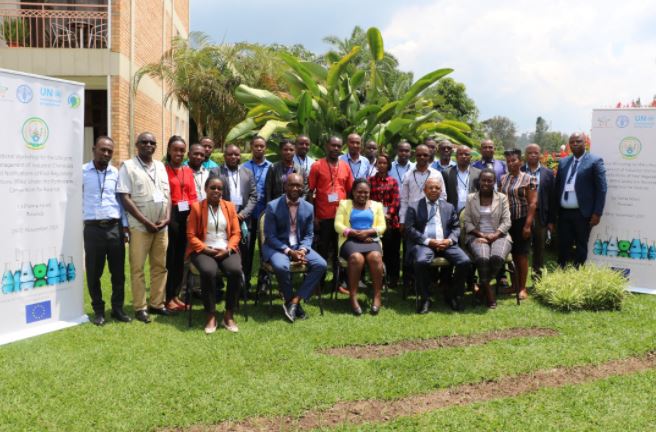
Stakeholders trained on Rotterdam Convention
Members of Chemical Based Conventions National Steering Committee from government institutions, private sector and non-governmental organizations, that have role in the implementation of Rotterdam Convention were trained in the national follow-up workshop for the life cycle management of chemicals and Notifications of Final Regulatory Actions (FRAs) under Rotterdam Convention. The workshop running from November 9 to November 12 was co-organized by REMA and Rotterdam convention secretariat in partnership with UN Environment Programme, UN Food and Agriculture Organization, and European Union.
This workshop which was financed by European Union is a follow-up to the “Sub-Regional workshop on the life cycle management of industrial chemicals under the Rotterdam Convention” that took place in Nairobi, Kenya 2019.
The key objectives of the follow-up workshop were to facilitate the strengthening of the capacity of Parties to assess and manage risks, prepare and communicate import responses and take decisions on final regulatory actions for chemicals that are listed under the Rotterdam Convention in accordance with the prior informed consent procedure.
It also aimed to raise awareness on hazardous chemicals through the use of GHS and also facilitate the development of frameworks and implementation plans for chemicals management, provide tools and approaches for Parties to apply precaution in industrial and pesticide chemicals management.
Opening the training on behalf of REMA Director General, Racheal TUSHABE, the Director of Advocacy and Multilateral Environmental Agreements Monitoring said:
“Environment has no borders, but, it also has no voice. We are the ones to advocate for the planet and enable nature to be heard and direct the conflict in particular ways. Hence, this is an assignment for all countries around the world. We can make it by joining hands as global community through the ratification, accession of Multilateral Environmental Agreements (MEAs) and putting emphasis on their implementation as it is the core solution to save our lives and biodiversity from diverse impacts resulting from the poor management of pesticide and industrial chemicals”.
Led by the trainers James Mulolo and Thabo Moroba from the Africa Institute for the Environmentally Sound Management of Hazardous, the training looked at the main provisions of Rotterdam convention, status regarding submissions, key obligations under the convention with focus on the role of National Coordination and Cooperation for sound chemicals management, hazard, risk assessment and management and framework development for sound management of chemicals. Trainees were also explained the distinction between Rotterdam Convention, Basel Convention and Stockholm Convention.
So far, Rwanda is party to 18 MEAs, notably the Rotterdam convention on prior informed consent. For the effective implementation of Rotterdam convention, Rwanda synergized it with the Strategic Approach to the International Chemicals Management, Basel, Stockholm and Minamata Conventions.
Since the date of its Ratification, Rwanda informed the secretariat the final decision taken against the transboundary movement of different pesticide and industrial chemical under annex III. In addition to the import responses submitted, during this year, Rwanda has adopted ministerial order banning eighty-seven (87) pesticide and industrial chemicals. Henceforth, 30 of them have been submitted to the Rotterdam Secretariat through import responses as provided for by article 10 of the convention.
About Basel, Rotterdam and Stockholm Conventions
The Rotterdam Convention which was adopted in 1998 and became effective in 2004 is a multilateral treaty to promote shared responsibilities in relation to importation of hazardous chemicals.
The convention promotes open exchange of information and calls on exporters of hazardous chemicals to use proper labeling, include directions on safe handling, and inform purchasers of any known restrictions or bans.
Signatory nations can decide whether to allow or ban the importation of chemicals listed in the treaty, and exporting countries are obliged to make sure that producers within their jurisdiction comply.
Basel Convention, adopted in 1989 and entered into force in 1992, is an international treaty that was designed to reduce the movements of hazardous waste between nations.
The Basel Convention regulates the transboundary movements of hazardous wastes and other wastes.
Stockholm Convention on Persistent Organic Pollutants is an international environmental treaty, signed on 22 May 2001 in Stockholm and effective from 17 May 2004.
Topics
More posts
RWANDA MARKS WORLD ENVIRONMENT DAY AFTER WEEKLONG CAMPAIGN PROMOTING SOLUTIONS TO PLASTIC POLLUTION
Rwanda has on June 5, 2023 joined the rest of the World to mark the World Environment Day (WED 2023), which is marked with the theme Beat Plastic…
Rwanda and partners launch two projects to advance energy efficiency and sustainable cooling
The Government of Rwanda, through the Rwanda Environment Management Authority (REMA), the Food and Agriculture Organization (FAO) and the Green…
REMA launches the Evidence-based Climate Reporting Initiative to advance climate research and reporting
The Rwanda Environment Management Authority (REMA) in collaboration with the African Institute of Mathematical Sciences (AIMS) have on May 19, 2023…
National Ozone Officers meet in Kigali to discuss the implementation of Montreal Protocol and its Kigali Amendment
The Rwanda Environment Management Authority (REMA) in collaboration with the United Nations Environment Programme (UNEP)’s OzonAction has organized a…
Minister Mujawamariya officiates the use of LPG donated to 20 schools by REMA through Green Amayaga Project
The Minister of Environment, Dr. Jeanne d’Arc Mujawamariya has on 3rd May 2023 launched the use of Liquefied Petroleum Gas (LPG) for bulk cooking in…
Delegates from across Africa meet in Kigali to Develop Priorities and Strategies for International Legally Binding Instrument to End Plastic Pollution
The Rwanda Environment Management Authority (REMA), in collaboration with the Environmental Investigation Agency (EIA) and the Center for…
Rwanda elected to chair Platform of Environmental Protection Agencies in Africa
The first-ever roundtable meeting of Heads of Environmental Protection Agencies and Directors of Environment in Africa (EPAs) has elected Rwanda to…
Rwanda to host African Heads of Environmental Protection Agencies to discuss common environmental challenges
Rwanda will from 7–8 March 2023 host the first meeting of the Heads of Environment Protection Agencies and Directors of Environment in Africa (EPAs).
…Delegates from Rwanda conduct a strategic tour in UK to pave the way for the operationalization of ACES
Rwandan Delegates and the Africa Centre of Africa Centre of Excellence for Sustainable Cooling and Cold-Chain (ACES) Project team are participating in…
